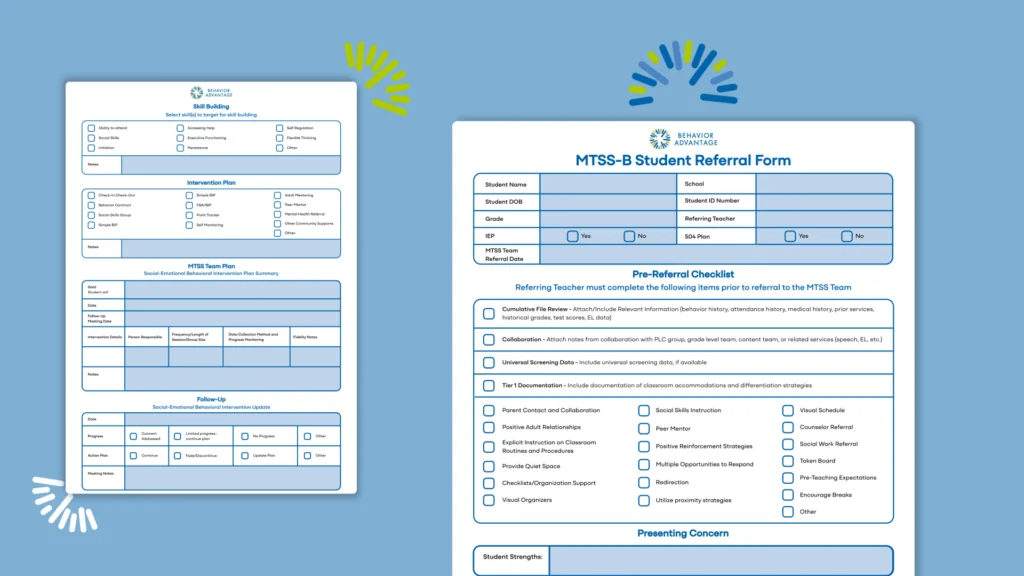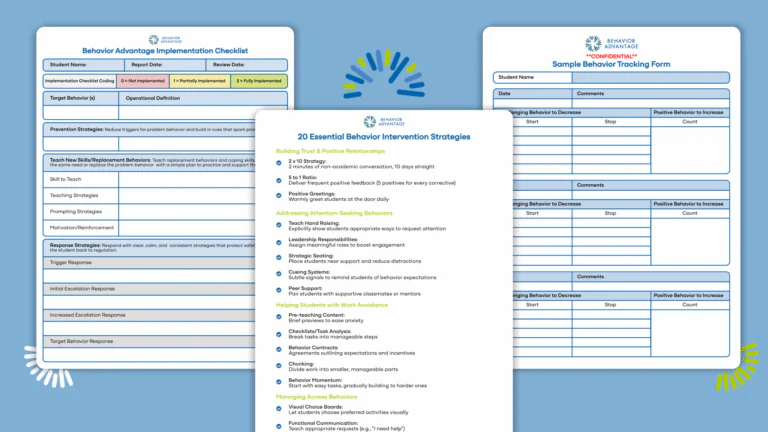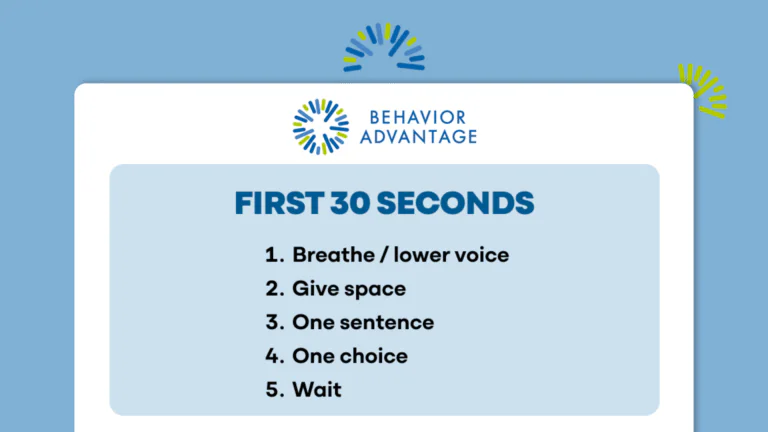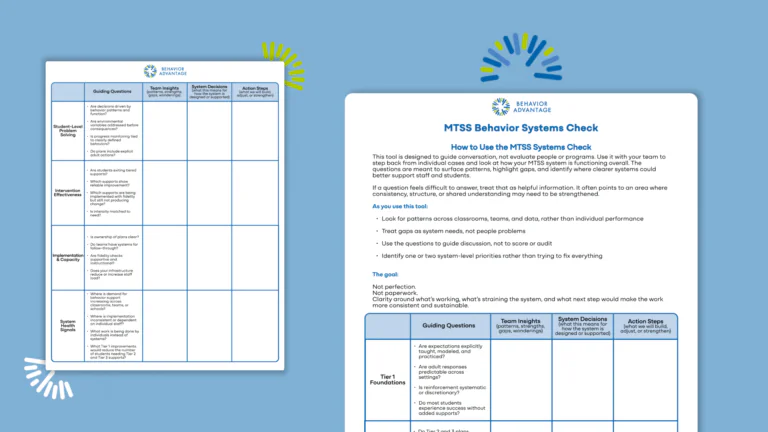Looking for a better way to manage your MTSS referral process? A clear referral is the first step.
Our free MTSS Referral Form helps you streamline everything from identifying concerns to implementing targeted interventions. It fosters clear collaboration among your team, ensuring every learner gets the help they need right on time.
- Collect essential data to document student concerns.
- Outline clear next steps for targeted SEB intervention.
- Foster teamwork between teachers, counselors, and staff.







